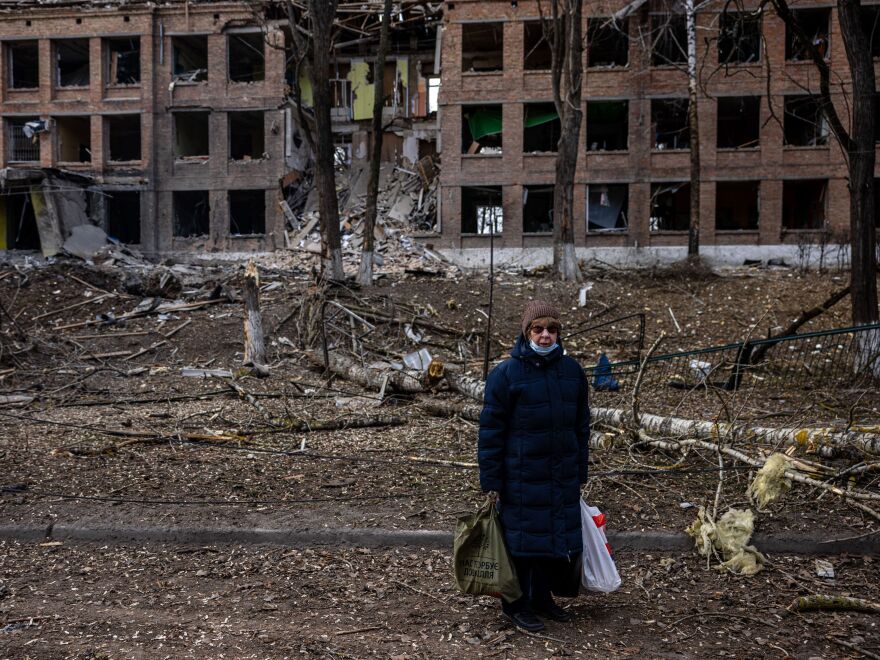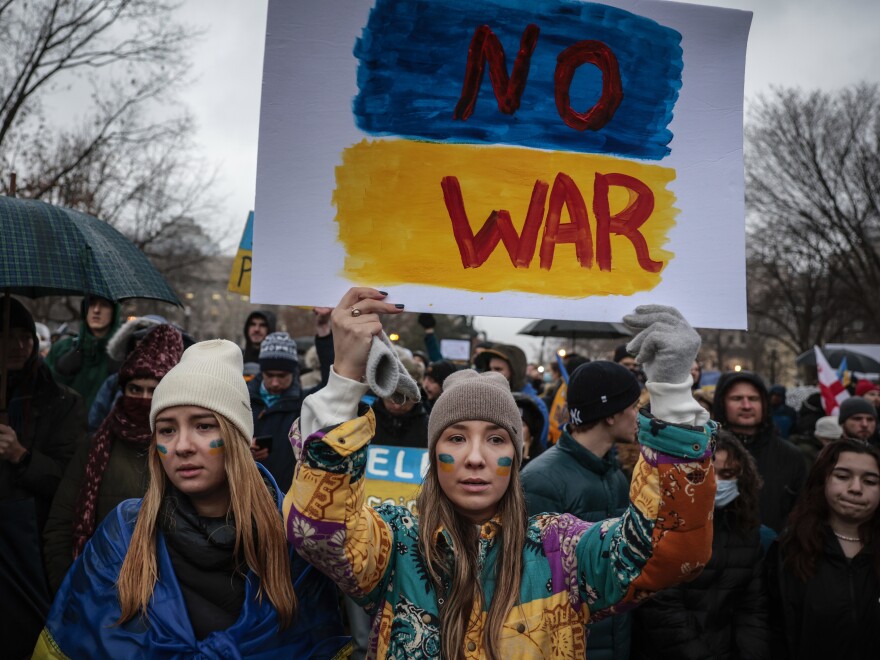The full-scale war between Russia and Ukraine has reached the 100-day mark, with no end in sight.
The war has left devastating effects, with thousands of deaths on both sides, including many Ukrainian civilians, whole Ukrainian cities in ruin and drawing hefty international sanctions on Russia.
The conflict has forced millions of Ukrainians to flee their homes — including an estimated two-thirds of the country's children. With so many people displaced inside the country and even more escaping to other countries, "this is the largest human displacement crisis in the world today," according to the United Nations refugee agency.
Many are returning to Ukraine
Yet the dire circumstances haven't stopped people from returning to parts of Ukraine, as the violence has become increasingly focused in the south and east of the country.
The U.N. refugee agency, known as UNHCR, has recorded nearly 7 million border crossings out of Ukraine since Feb. 24, when Russia launched the invasion. Now more than 2 million have crossed back into Ukraine.
"In recent weeks more people have been returning to Ukraine than leaving the country," says Frontex, the European Border and Coast Guard Agency.

Ukraine defended its capital, and the battle shifted elsewhere
After months of armed conflict, both the Russian and Ukrainian militaries have claimed some successes, according to NPR's Ryan Lucas, reporting from Kyiv:
"Ukraine held off Russia's initial attack on Kyiv in the early weeks of the war and ultimately repelled Russian troops from around the capital entirely.
"Russia has since regrouped and is focusing its efforts in eastern and southern Ukraine, where it has found more success. Russian troops have seized a large swath of territory in the south that includes the city of Mariupol, which resisted a ferocious Russian assault for weeks before ultimately falling. In the eastern Donbas region, Russian troops are making slow gains in a grinding artillery battle."

To visualize the changes this conflict has undergone, the United Kingdom's Defense Ministry created a map animation showing the first large-scale Russian incursions, followed by Ukrainian gains and a broad shift to the east:
1/2 Russia’s assault into northern Ukraine ended in a costly failure. Russia failed to implement its own principles of war. With the limited combat readiness of many units, it spread its forces too thinly without enough support from artillery and combat aircraft. pic.twitter.com/wujUf41NXd
— Ministry of Defence 🇬🇧 (@DefenceHQ) June 3, 2022
The war has taken a huge toll on ordinary residents. The Office of the U.N. High Commissioner for Human Rights says 4,183 civilians have been killed, including 268 children, and more than 5,000 injured since the start of the invasion.
The agency, known as the OHCHR, says it believes the actual figures are much higher given delays in reporting and confirmation.
Copyright 2022 NPR. To see more, visit https://www.npr.org.



